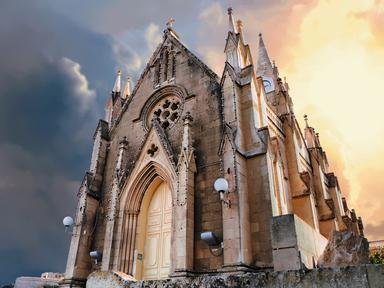Quiz Answer Key and Fun Facts
1. Maundy Thursday commemorates the Last Supper. Which of these events did NOT occur at the Last Supper?
2. In the account of the Last Supper found in the Gospel of John, Jesus told his disciples, "a new command I give you." What is Christ's "new command" to his disciples?
3. In which church is Maundy Thursday called the "Thursday of Mysteries"?
4. Maundy Thursday has sometimes been known by what name, originating from a word that means "clean" or "bright"?
5. The ritual of foot washing is practiced in many liturgical churches on Maundy Thursday, but what church routinely practices it before communion, which it traditionally holds four times a year?
6. In the Eastern Orthodox church, during the holy foot washing ceremony on Great and Holy Thursday, who washes whose feet?
7. Some theorize that in English usage, the term "maundy" arises from the Latin for "commandment." Others argue it arises from the French "mendier" or the Latin "mendicare" meaning what?
8. In Germany, this day is sometimes called "Gründonnerstag," which means what?
9. "Eat this Bread" is a popular modern hymn for Maundy Thursday. Composed by Jacques Berthier, the song (in English) begins, "Eat this Bread, drink this Cup. / Come to Me and never be ____" what?
10. The Last Supper is a common theme in Christian art. Which of the following painters is NOT known for depicting the Last Supper?
Source: Author
skylarb
This quiz was reviewed by FunTrivia editor
LeoDaVinci before going online.
Any errors found in FunTrivia content are routinely corrected through our feedback system.

